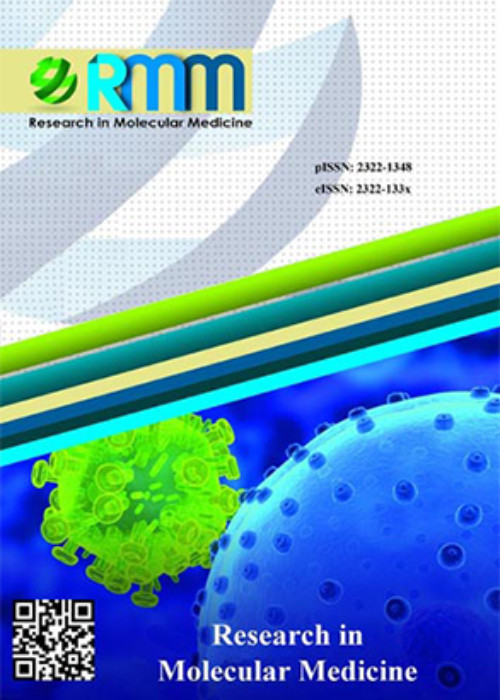Identification and prioritization genes related to Hypercholesterolemia QTLs using gene ontology and protein interaction networks
Author(s):
Abstract:
Gene identification represents the first step to a better understanding of the physiological role of the underlying protein and disease pathways, which in turn serves as a starting point for developing therapeutic interventions. Familial hypercholesterolemia is a hereditary metabolic disorder characterized by high low-density lipoprotein cholesterol levels. Hypercholesterolemia is a quantitative trait that is controlled by interactions among several quantitative trait loci. Many biological data is presented in the context of biological networks and evaluation of biological networks is considered as the essential key to understanding complex biological systems. In this research, we used combination of information about quantitative trait loci of hypercholesterolemia with information of gene ontology and protein–protein interaction network for identification of genes associated with hypercholesterolemia. For this disease, we introduced 16 new genes which were in quantitative trait loci regions and were associated with the hypercholesterolemia disease in terms of gene ontology characteristics.
Keywords:
Language:
English
Published:
Research in Molecular Medicine, Volume:3 Issue: 1, Feb 2015
Pages:
16 to 21
magiran.com/p1397150
دانلود و مطالعه متن این مقاله با یکی از روشهای زیر امکان پذیر است:
اشتراک شخصی
با عضویت و پرداخت آنلاین حق اشتراک یکساله به مبلغ 1,390,000ريال میتوانید 70 عنوان مطلب دانلود کنید!
اشتراک سازمانی
به کتابخانه دانشگاه یا محل کار خود پیشنهاد کنید تا اشتراک سازمانی این پایگاه را برای دسترسی نامحدود همه کاربران به متن مطالب تهیه نمایند!
توجه!
- حق عضویت دریافتی صرف حمایت از نشریات عضو و نگهداری، تکمیل و توسعه مگیران میشود.
- پرداخت حق اشتراک و دانلود مقالات اجازه بازنشر آن در سایر رسانههای چاپی و دیجیتال را به کاربر نمیدهد.
In order to view content subscription is required
Personal subscription
Subscribe magiran.com for 70 € euros via PayPal and download 70 articles during a year.
Organization subscription
Please contact us to subscribe your university or library for unlimited access!


